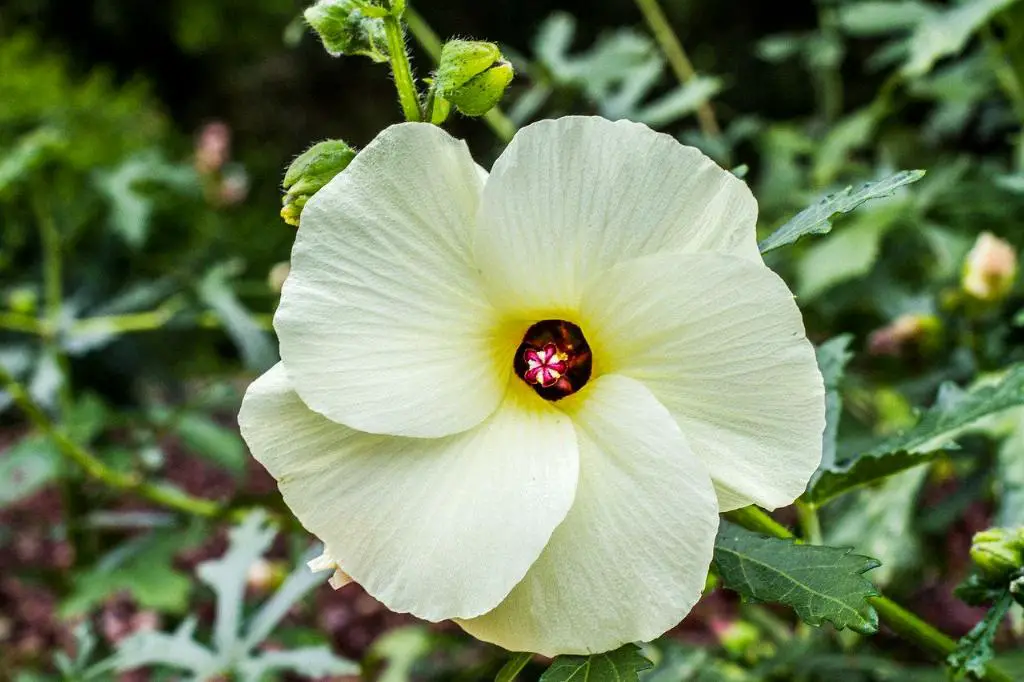When it comes to caring for your hibiscus plants, finding the best fertilizer is key to ensuring they thrive and bloom beautifully. Hibiscus plants require a balanced combination of essential nutrients to support healthy growth and vibrant flowers. Understanding the specific needs of hibiscus plants can help you choose the right fertilizer for optimal results.
The Importance of NPK Ratio
One of the key factors to consider when selecting a fertilizer for your hibiscus plants is the NPK ratio, which represents the percentage of nitrogen, phosphorus, and potassium in the fertilizer. For hibiscus plants, a balanced NPK ratio is essential for promoting healthy foliage growth, strong root development, and abundant flowering.
Choosing the Ideal NPK Ratio
An NPK ratio of 7-6-5 is often recommended for hibiscus plants, as it provides a balanced mix of nutrients to support all aspects of plant growth. This ratio ensures that hibiscus plants receive the right amount of nitrogen for leaf development, phosphorus for root growth, and potassium for flower production.
Alternatives to the Recommended Ratio
While a fertilizer with a 7-6-5 NPK ratio is ideal for hibiscus plants, you can also use a general flower fertilizer with a similar nutrient profile to promote healthy growth and blooming. The key is to ensure that the fertilizer you choose contains the essential nutrients hibiscus plants need to thrive.
Frequency of Feeding
When it comes to feeding your hibiscus plants, it’s important to establish a regular schedule to provide them with the necessary nutrients for optimal growth. During the growing season, feeding your hibiscus plants every 2-4 weeks can help maintain their health and promote continuous blooming.
Best Practices for Fertilizing Hibiscus
When applying fertilizer to your hibiscus plants, it’s important to follow some best practices to ensure they receive the nutrients effectively. Water your plants thoroughly before and after fertilizing to prevent root burn, and avoid overfeeding, as this can lead to nutrient imbalances and poor plant health.
Organic vs. Synthetic Fertilizers
When choosing a fertilizer for your hibiscus plants, you can opt for organic or synthetic options based on your preferences and gardening practices. Organic fertilizers provide slow-release nutrients and improve soil health, while synthetic fertilizers offer quick results and precise nutrient formulations.
Considerations for Container-Grown Hibiscus
If you’re growing hibiscus plants in containers, it’s important to adjust your fertilization routine to meet their specific needs. Container-grown hibiscus plants may require more frequent feeding due to the limited soil volume, so monitor their growth and adjust your fertilization schedule accordingly.
Monitoring Plant Health
To determine if your hibiscus plants are receiving the right nutrients, keep an eye on their overall health and growth. Look for signs of nutrient deficiencies, such as yellowing leaves or stunted growth, and adjust your fertilization regimen as needed to address any issues and promote healthy plant development.
Additional Tips for Fertilizing Hibiscus
Consider supplementing your hibiscus plants with micronutrients like iron and magnesium to enhance their overall health and blooming potential. Also, avoid fertilizing hibiscus plants during the dormant season, as they require fewer nutrients during this time and may be more sensitive to fertilizer applications.
Conclusion
Choosing the best fertilizer for your hibiscus plants is essential for supporting their growth and flowering potential. By selecting a fertilizer with the right NPK ratio, establishing a feeding schedule, and monitoring your plants’ health, you can ensure that your hibiscus plants thrive and bloom beautifully throughout the growing season.

